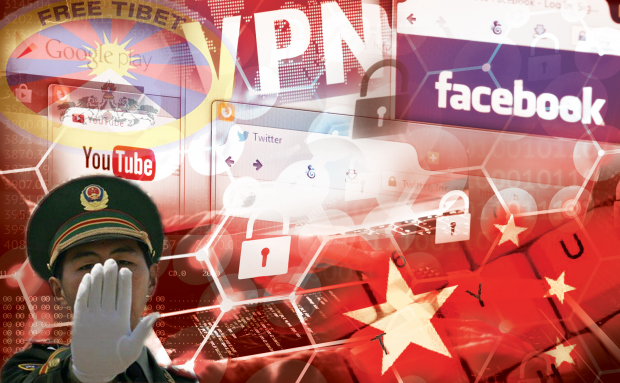
China smothers last breath of internet freedom with VPN ban
In the age of growing internet freedom and governmental transparency, China’s infamous Great Firewall has unabatedly suppressed freedom of expression and strictly monitored the information that could be accessed by its citizens. China has employed a range of cyber security: Internet surveillance, data mining and censorship measures to control Internet Service Provider (ISP), Internet Content Provider (ICP), Internet subscribers, and Internet cafe users. Regulation over internet access has grown more comprehensive, specific and extensive with the State Council giving the ministry of public security the overall responsibility for internet supervision.
In China, a wide range of topics, words, themes, images etc. are considered sensitive or controversial by the government. Media is heavily controlled and journalists are frequently punished for publishing information or stating positions that deviate from official communist party doctrine. China suppresses publication of any information which they deem “subversive” including the Tiananmen Square uprising, support for free Tibet, and the Falun Gong spiritual movement.
However, despite China’s sophisticated internet censorship tools and policies, Chinese activists and bloggers have until now figured out ways to express themselves to the Chinese people and to the world. Tech savvy individuals have played a prominent role in bringing freedom of speech to China with the introduction of new and updated software to penetrate the great firewall of China. Virtual Private Networks (VPN) have been their mainstay in boring through the wall, anonymously giving unrestricted access to activists and journalists and securely spreading information that would otherwise have been censored.
Individuals in China by using VPN can ensure that their access to the internet is safe and secure. Most VPN providers also make it possible for them to be anonymous online, so that even the ISP can’t track or monitor their online activity. Using dedicated connections and virtual tunneling, a VPN provides the user with privacy, security and the freedom to browse the internet without fear.
Now, this last bastion of internet freedom, this safe haven for activists and journalists resisting one of the most despotic regimes on the face of the earth is being shut down. The Chinese government recently ordered the nation’s three telecommunications carriers including China Mobile, China Unicom and China Telecom to completely pull the plug on the usage of Virtual Private Networks by February 1, 2018. Once fully implemented, this will make it nearly impossible for individuals in the country to access unfiltered web content from sources abroad including Facebook, Twitter, YouTube, Google and global news outlets like the New York Times and BBC etc.
China blocked significant amounts of content related to the issues of Tibet, including both material concerning the dispute over Tibet and sites about the Dalai Lama. They make a systematic, comprehensive, and frequently successful effort to limit the ability of its citizens to access and to post on line content the state considers sensitive.
The decision is not an abrupt one as it comes on the heels of a 14-month “cleanup” of internet services announced in January as part of president Xi Jinping’s push for so-called “internet sovereignty”. China will completely block access to much of the global internet and oversee sweeping crackdowns aimed at suppressing dissent and maintaining the Communist party’s grip on power. VPNs which provided secure encrypted connections and allowed users to circumvent censorship restrictions became one of the first causalities.
The restriction on VPNs will also affect academicians, researchers, software developers and foreign businesses which have been the mainstay of China’s growing economy. Academicians will lack adequate access to overseas journals and methods to communicate with universities around the world, while software developers who rely on codes hosted on websites based outside China will be handicapped. For foreign as well as domestic companies, VPNs are incredibly important to access unrestricted global services and access markets outside China.
Restricting VPN and censoring information is not the way forward for a country trying to hog global limelight and portray itself as a world leader. Rather, the latest restrictions will further isolate China from the rest of the world, limiting its ability to learn about the world and share its opinions.
The Chinese government must realise that limiting access to information is wrong but transparency will lead to a more powerful and resourceful China.
___________
*Tenzin Dalha is a Visiting Fellow at the Tibet Policy Institute. Views expressed here do not necessarily reflect those of the Tibet Policy Institute.
